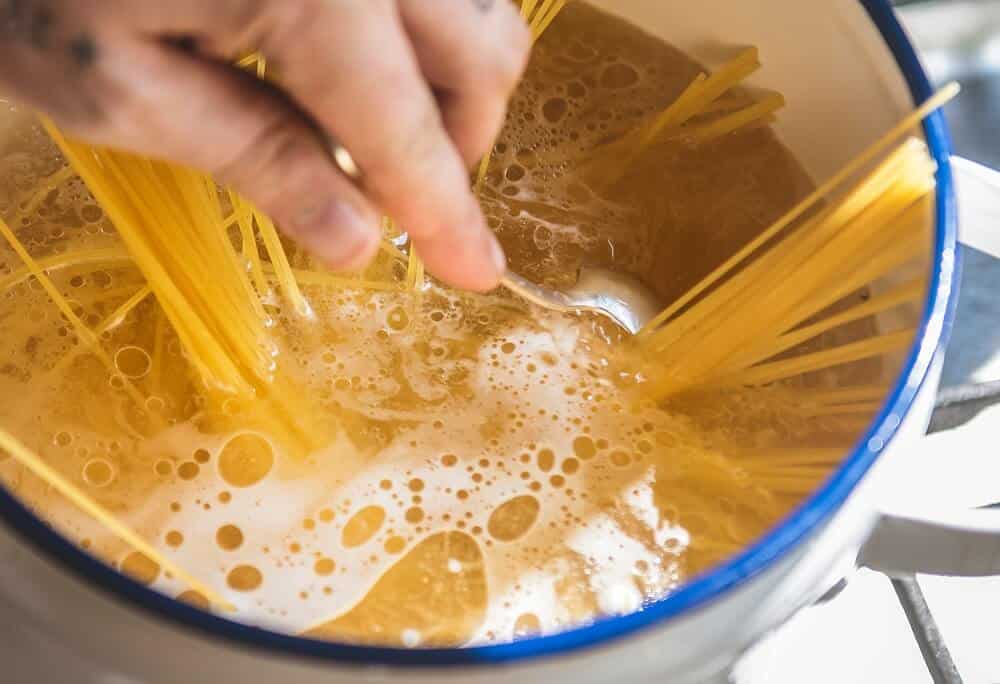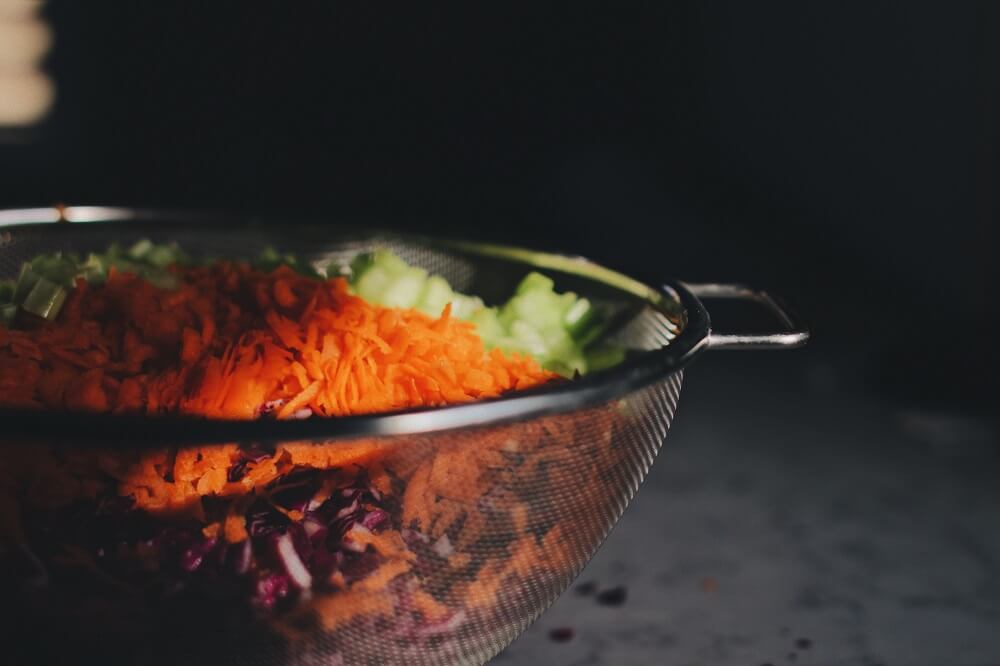The garbage disposal is certainly practical for eliminating an assortment of food scraps and waste that can create unpleasant odors in your kitchen. It can often make clean-up after dinner much easier. But if you’re not careful with what you put in your garbage disposal, you could end up damaging it. Here are the nine most common disastrous items that end up in the disposal (including some common foods!) and ways to protect your appliance and plumbing.
If you’re experiencing an issue with your garbage disposal, it’s making noises, or simply not working, it’s time to call a professional. CW Service Pros has experience repairing and installing garbage disposals, and we’re here to help! To schedule an appointment, reach us at 972-395-2597.
Most Common Garbage Disposal Killers
These nine items are some of the most common things that go down the drain but can do real damage to your garbage disposal.
1. Vegetable Peels and Fruit Skins
Relegate your vegetable peels and fruit skins to the garbage. The peels and skins from vegetables and fruits, such as potatoes, onions, mangoes, and apples, can get caught around the disposer blades. When this happens, it prevents the disposer from working properly.
If you must dispose of these items in your disposal, it is advisable to do it in small quantities and ensure that you run cold water while doing it.
2. Pasta and Rice
It’s easy to drop some pasta or rice into the sink while cooking, and the simple answer may be just to push it into the garbage disposal. But these items can stick to the pipes and the blades, which can clog the sink. Even small amounts can back up your plumbing.

3. Celery Stalks or Stringy Vegetables
Celery is rubbery and can generate the same effect as potato or apple skins. Spinach, a stringy vegetable, can also cause serious congestion inside your sink.
4. Bones or Shellfish Shells
Bones and shells can dull and break your garbage disposal’s blades. These hard materials can jam the disposal, thwarting the blades from functioning properly and eventually exhausting the motor.
5. Fruit Seeds and Pits
Big and hard seeds and pits from nectarines, cherries, peaches, and durians can create similar effects as bones. They can blunt the blades or completely stop your garbage disposal from working.
6. Fats, Grease, or Greasy Foods
Fats and greasy foods will dispense a film around the blades, reducing their effectiveness. Ultimately, the grease will start to putrefy, causing horrid smells in your kitchen. Aside from the smell, grease can also result in clogged pipes and drains when it hardens.

Got kitchen smells?
Stop them now!
7. Egg Shells
Egg shells have no place in the disposer. Some people claim they sharpen the blades, but this is untrue. Egg shells have a stringy membrane layer that can wrap around the unit’s shredder ring. When the shells are ground to consistency akin to sand, they can eventually clog up your pipes.
8. Tea Leaves
This item can cause the same effect as rice and pasta. Dump your loose leaf tea in the garbage to avoid a backed-up kitchen sink.
9. Non-Food Items
You should always avoid disposing of non-food items in the garbage disposal. Some non-food items that frequently go down the drain include:
- Cigarette butts
- Rubber bands
- Sponges
- Pull tabs
- Twist ties
- Spoons
- Plant clippings
- Fabric
Your garbage disposal will be unable to break these down, and they’ll be washed down the drain. This can result in serious and costly damage to your plumbing.
If you have a non-food item stuck in your garbage disposal, don’t try to get it out without unplugging your appliance. You may want to call a professional for assistance.
Other Ways to Dispose of These Foods
The garbage disposal can be an excellent tool, but it’s not excellent for the environment. The food scraps that pass through them ultimately gets pumped back into local water sources and can affect their chemical composition and the life that lives there.
To help the environment, your garbage disposal, and your plumbing system, follow some of these alternative methods to dispose of your food.
Make a Compost Heap
Instead of throwing away food or putting it down the garbage disposal, turn scraps or excess foods into fertile and rich-in-nutrients compost for your land. A compost pile can be kept in a small container on your counter that gets transferred to a larger heap outside. Then you can allocate it to feed your garden in the spring!
Ensure that you only add organic items to your compost pile, like:
- Bread products
- Eggshells
- Fruits
- Vegetable scraps
If you do not want unwanted animals in your garden, you should avoid adding:
- Meat
- Fatty scraps
- Bones
Use a Sink Colander or Strainer
Garbage disposers are ideal because they offer you the ability to wash down scraps without clogging up the sink. But pulling wet scraps or excess foods from your sink is not a pleasant task to do regularly. Consider placing a sink colander or strainer over the drain to stop the food waste from going down.
This easy step will make clean-up much easier while protecting your garbage disposal and plumbing system. It will also prevent non-food items from accidentally falling into the drain.

What CAN Go into the Garbage Disposal?
While there are several items you shouldn’t put in the garbage disposal, there are a few you can! Some can even benefit your appliance.
Citrus Rinds
Although most vegetable skins are harmful to your garbage disposal, citrus rinds can be beneficial. Lemon and orange peels can clean out your garbage disposal and leave your kitchen smelling fresh.
Ice
Ice is another item that can help you clean the appliance by removing food that may be stuck. It also helps sharpen the blades.
Soft Foods
Soft foods, like yogurt and applesauce, are generally safe to put down the garbage disposal. Soups, as long as they don’t contain bones, can also be disposed of this way.
Small Bits of Food at a Time
If the food you’re wishing to throw out isn’t listed above as a drain killer, it can probably go into the garbage disposal safely, but that doesn’t mean you should throw it all in at once. No matter what you’re putting down the drain, it should be in small bites.
Don’t treat your garbage disposal as a trash can. Instead, think of it as a good way to avoid a smelly sink and avoid accidental clogs when bits of food do fall down the drain. Start putting most of your food waste in your trash, rather than relying on your garbage disposal to do the work. Practicing good garbage-disposal maintenance now can help ensure your disposer lasts without a repair bill in your future!
Should you encounter a problem with your garbage disposal, sink, or pipes, contact an expert plumber, such as the licensed technicians at CW Service Pros to deal with the problem. Call 972-395-2597, and we’ll come take a look!

















